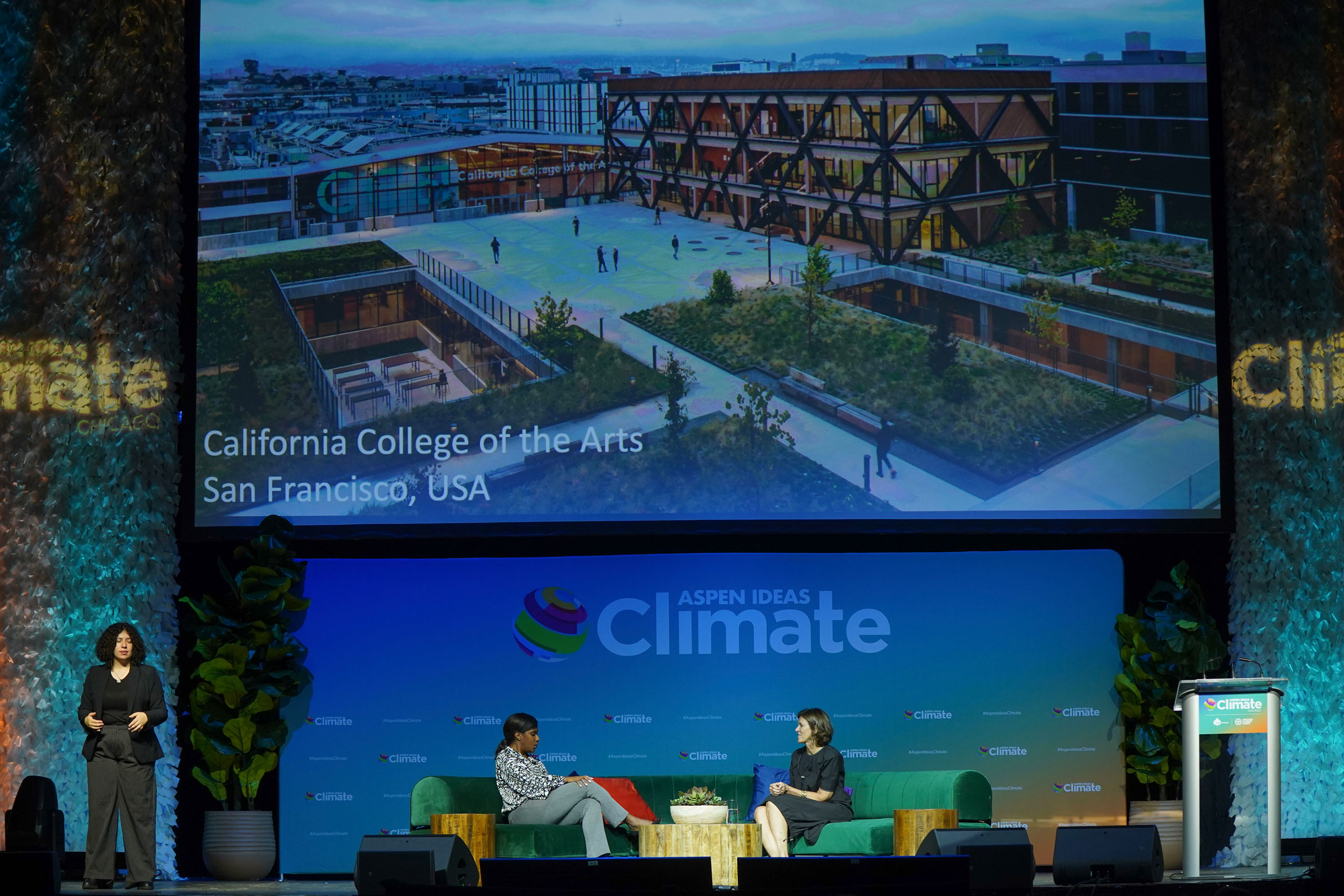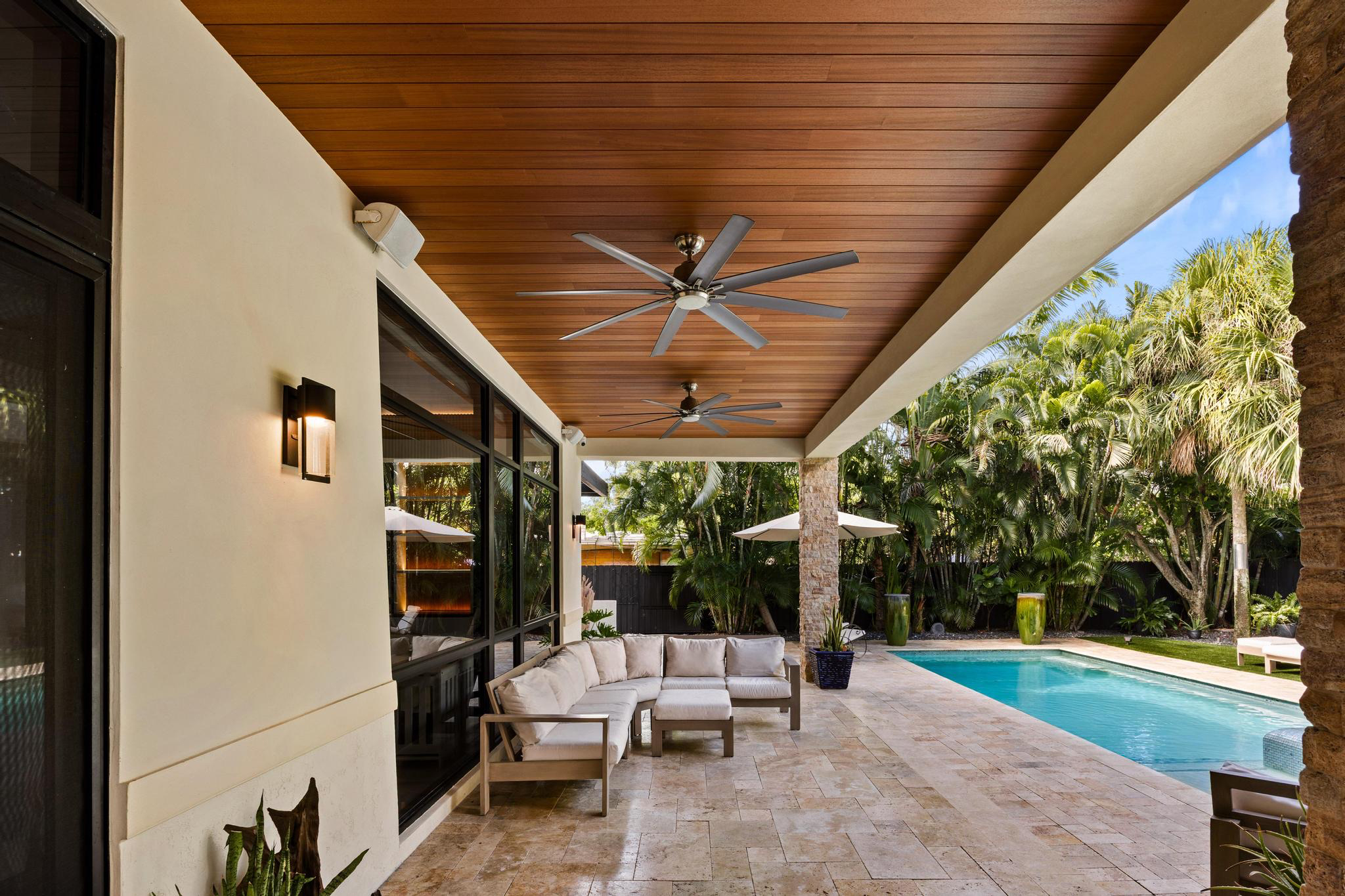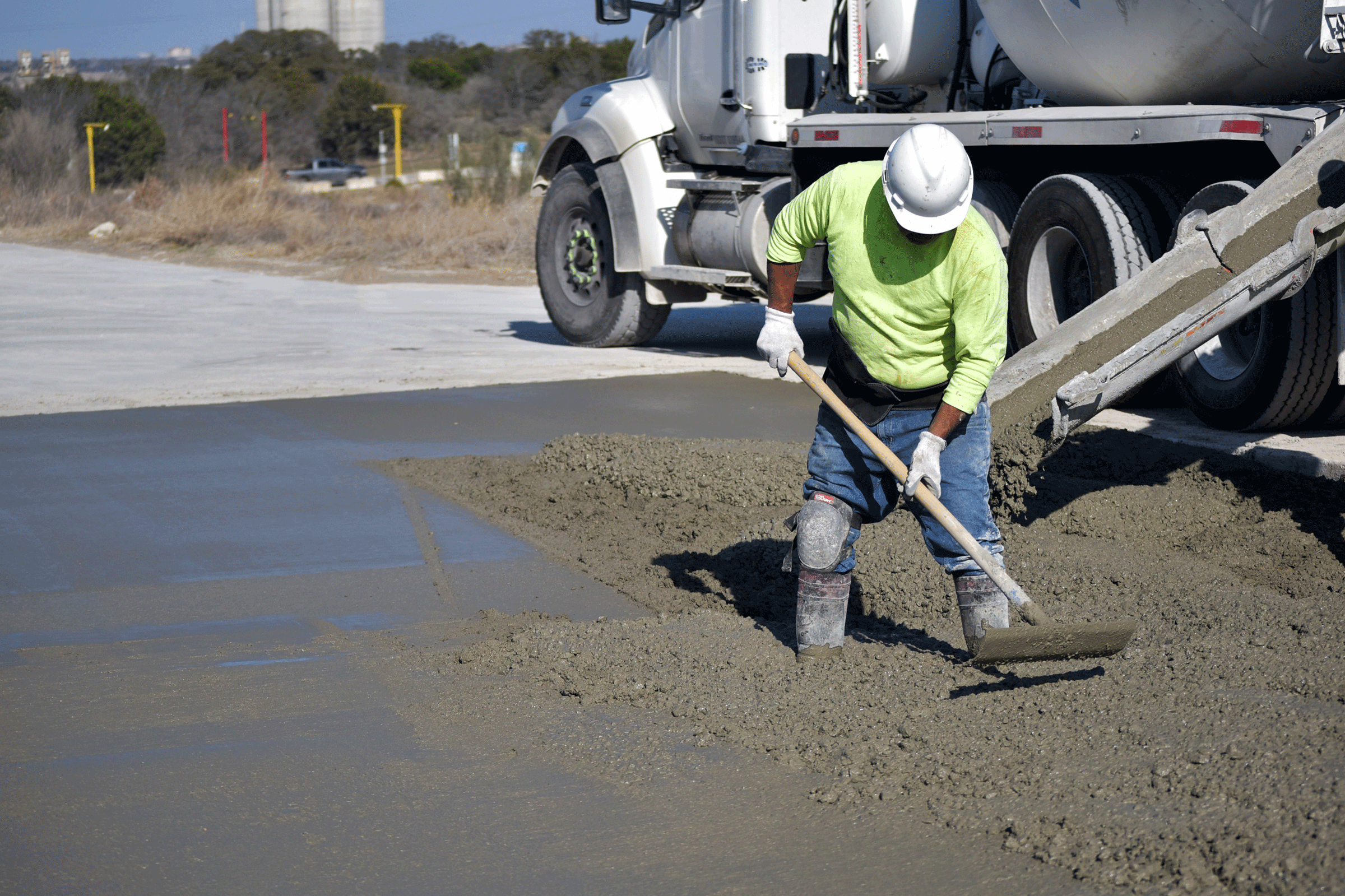Story at a glance:
- Aspen Ideas: Climate Chicago was held at important sustainable sites across Chicago from July 19 to 22, 2025, including hosting major speakers at the Salt Shed and offering an immersive experience at the Wild Mile.
- Global and local policymakers, scientific experts, corporate leaders, inventors, architects, and more gathered for the event, with many sessions taking place at Willis Tower.
- Keynote speakers included COP30 President André Corrêa do Lago, Studio Gang founder Jeanne Gang, Illinois Governor JB Pritzker, and many others.
“All nations need to reduce their greenhouse gases by 42% by 2030, or it’s going to be catastrophic.” This UN statement was repeated in one form or another across three days as part of Aspen Ideas: Climate Chicago, a three-day event to address a changing climate.
A feeling of urgency mixed with optimism was felt throughout the sessions, as everyone from architects and designers to policymakers explored what it would take to bring about a more sustainable future. The question of “by 2030” loomed large.
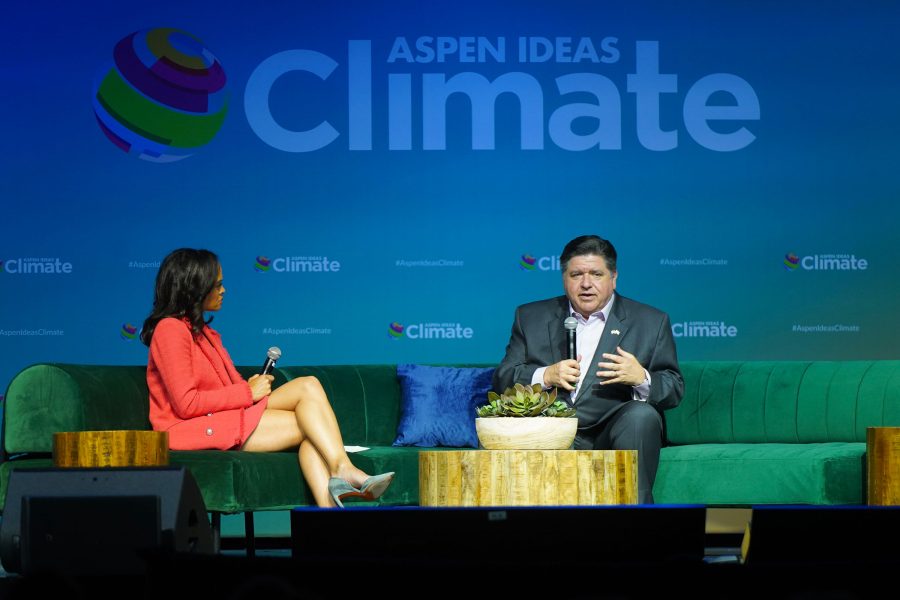
ABC News’ Linsey Davis interviews Illinois Governor JB Pritzker as part of Aspen Ideas: Climate Chicago in July 2025 at the Salt Shed. Photo courtesy of Aspen Ideas: Climate Chicago
“I don’t know whether it’s possible,” says Illinois Governor JB Pritzker to a packed house at the Salt Shed in a conversation with ABC News’ Linsey Davis on Monday night. “I think many people have been screaming at the top of their lungs, rightfully so, about the necessity of climate action. I was at COP26 a couple years in the past and was there really talking about the progress we had made for the state of Illinois, and how it’s really tied specifically and significantly to economic progress. That is to say, if you want to accelerate the endeavor on climate action, you’ve got to make it understandable to everybody that there are jobs and economic opportunity available to them as a result of the change in our economy.”
What the Architects Have to Say
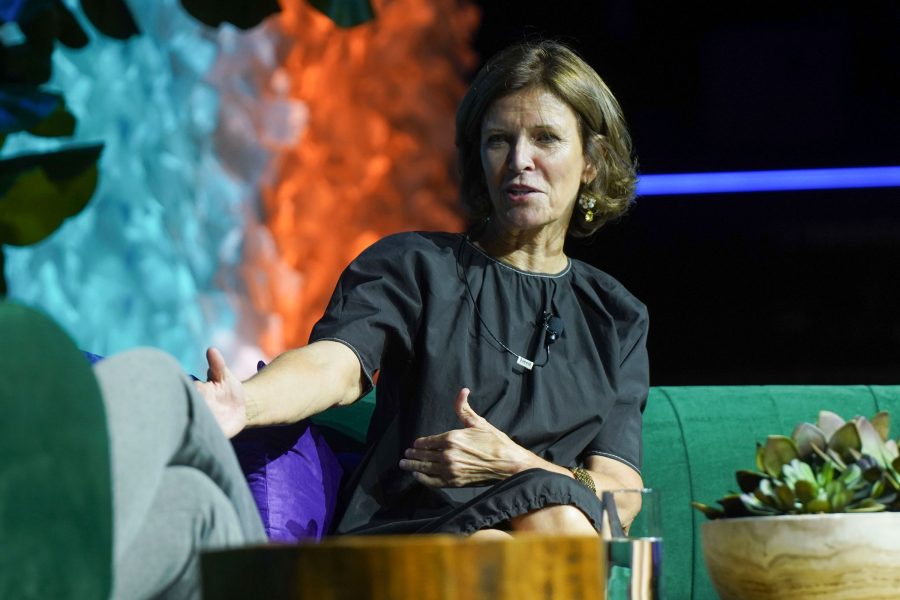
Studio Gang founder Jeanne Gang shares hope for future architect’s potential to bring people together. Photo courtesy of Aspen Ideas: Climate Chicago
In a conversation with NPR’s Sasha-Ann Simons on the same stage, Jeanne Gang was asked what advice she’d give to younger people in her field today. “I would hope that the next generation continues to work on climate and continues to work on social equity in their work. I really want them to not get frustrated and give up,” she says. “There are many solutions that are going to come out of this creativity.”
There are many solutions that are going to come out of this creativity.
The culmination of hard work and collaboration was a throughline of another panel, “Future-Proofing the Built Environment,” that took place at Willis Tower, led by climate policy leader Mark Chambers. The conversation shared insights from data scientist Victoria Hunt, sustainability leader Alana Spencer, sustainability and finance expert Kim Evans, and architect James Deane. As part of that discussion, Deane, director at Adrian Smith + Gordon Gill Architecture, warned of having a “fear-based response” and the risk of people overreacting with uninformed decision-making. He shared how his team approaches energy modeling, for example, by looking at the climate data of today as well as, say, the year 2100. In California he points to CMIP 7 as a useful tool, and he also cites ARUP’s WeatherShift as a tool anyone can use.
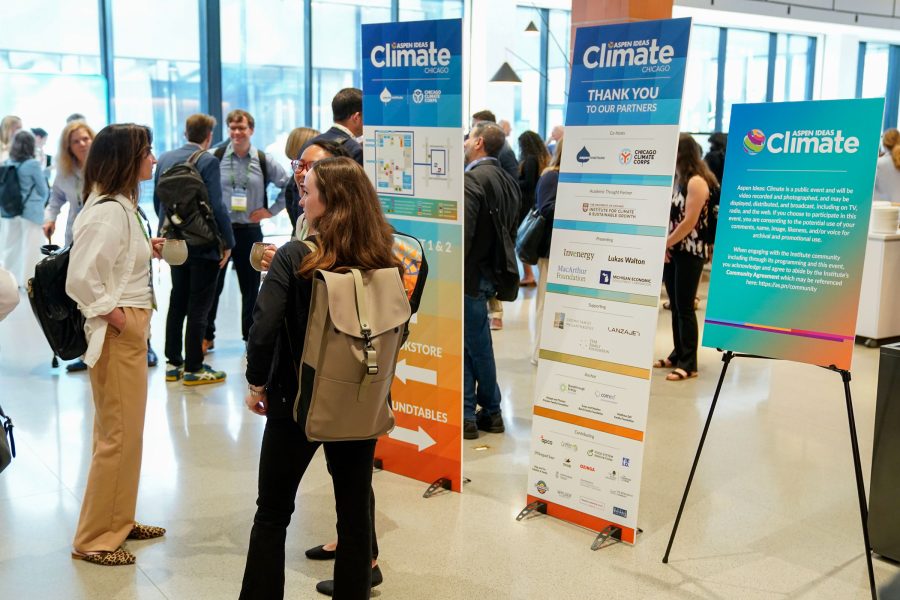
Aspen Ideas: Climate Chicago brought together global and local policymakers, climate change experts, architects, and more. Photo courtesy of Aspen Ideas: Climate Chicago
“Can I show you across the 100-year service life of a building that operationally we can make a business case around the sustainability response, because a lot of sustainability and resilience fundamentally comes to this idea of shifting OpEx money into CapEx money. That’s a big challenge,” he says. “How do I look at those larger sets of responses we can have in the design of the building and address insurance, address finance? We can help our clients make rational health and safety decisions for their employees.”
Sometimes it’s just about reframing the conversation.
Chambers points to how we spend 90% of our time in buildings, asking the panel to share strategies for intentional work that helps make a built environment that in turn helps people live their best lives.
“Buildings are a tool,“ Deane says. “Think about a building as a printer or as a car or a piece of machinery a company buys. It serves a purpose to them. When you start to look at it that way, it changes how you see the business model. Likewise, when you take that same building and you think about it in the context of the city—not as a building but as another piece of infrastructure in a city that’s there to serve the people—it changes how you think about it. Sometimes it’s just about reframing the conversation.”
Deane cautions getting overwhelmed. “This is an incremental process. There’s not one big idea that’s magically going to save us; it’s going to be thousands of little ideas. Some are going to work, and some aren’t going to work. Some are going to work in a moment, some will take time, but I believe we can solve the problem. I’m not saying it’s easy; I’m not saying it’s going to be cheap, or it’s going to be fast, but I believe we can do it.”
The Aspen Institute is a global convening and leadership organization that exists to ignite human potential, build understanding, and create new possibilities for a better world, says Dan Porterfield, president and CEO of the Aspen Institute. “For 75 years we’ve brought people together for dialogue and problem-solving to help address society’s greatest challenges, among them, of course, the escalating urgency of a changing climate. Aspen Ideas: Climate Chicago reflects our core methodology, dialogue that drives progress.”

